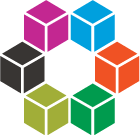Skill Building Blocks
 Intent on increasing success factors for youth, MHA Labs designed a common set of easy-to-understand 21st century skill targets known as The Building Blocks. The Building Blocks comprise 35 core social, emotional and cognitive skills deemed critical for college, career and life success.
Intent on increasing success factors for youth, MHA Labs designed a common set of easy-to-understand 21st century skill targets known as The Building Blocks. The Building Blocks comprise 35 core social, emotional and cognitive skills deemed critical for college, career and life success.
MHA Labs discovered early in its research that the volume of 21st century skills related competencies, frameworks and recommendations is creating instructional paralysis. Researchers are invested in domains such as soft skills, habits of mind, deeper learning, cognition, non-cognitive factors, college readiness, career readiness, and social emotional learning that compete for mindshare among youth developers, colleges and employers.
MHA Labs realized that youth developers, colleges and employers needed a unified skills framework that incorporated all domains. To achieve this goal, the MHA Labs team built a 4000-item competency database from existing research and engaged over 100 subject matter experts, assessment specialists, youth and parents to isolate 6 core skill domains and 35 core skills. Constructs such as leadership, responsibility, and self-efficacy were further broken down into the skills components that determine their efficacy.
MHA Labs Directly Addresses Cultural Bias
Listen to Lunch and Learn with Jonathan Rosa, Assistant Professor of Anthropology, University of Massachusetts Amherst. The Racial Implications of 21st Century Skills Assessment »
While 21st century skills research appears no-nonsense, MHA Labs is conscious that 21st century skills are socially constructed and subject to wide interpretation. Unfortunately, many research efforts do not explore cultural determination and mistakenly promote cultural norms as universal skills. To mitigate cultural bias, MHA Labs engaged a cultural anthropologist and linguist to analyze and debate each skill proposed for the framework….
MORE +
- SKILLS REDEFINED: Certain skills were either rewritten more technically to reduce ambiguity or were explicitly rewritten to reduce bias. For example, many skill frameworks list “articulate” as a verbal communication skill. Whether or not someone is considered articulate will be depend on the giver and receiver’s language proficiency and perceptions. Therefore MHA Labs rewrote this skill as “Uses and adjusts communication strategies as needed based on the purpose of the message, context, and audience”. Being articulate can now be taught as a communication strategy needed for certain social and professional contexts that demand it.
- SKILLS REFRAMED: Certain skills were deemed entirely determined by culture and context and could not be written objectively. These skills were not eliminated but reframed as a new social awareness skill. “Develops and implements strategies for navigating in different cultures/contexts (i.e., manages different patterns of behavior, rules, and norms)”. MHA Labs does not minimize the importance of teaching youth cultural norms that may be relevant to their college and career path. MHA Labs simply recommends that they be taught explicitly as cultural attributes rather than skills. If not, practitioners and policymakers perpetuate the dangerous prejudice that youth from the dominant culture are inherently more skilled that youth who are not.
The following are common examples of attributes determined by culture or context. Organizations and employers should provide explicit guidelines for how they define these in their own context.
- Active Listening
- Appearance
- Appreciative
- Attire
- Attitude
- Ethical
- Healthy Relationship
- Honesty
- Hygiene
- Initiative
- Integrity
- Professionalism
- Respectful
- Responsible
- Self Awareness
- Self Efficacy
- Self Image
- Sharing Emotions
- Social Responsibility
- Trustworthy
- Work Ethic
Why use the term 21st century skills if the framework is foundational for human achievement?
Surprisingly, the hardest phase of the framework development process was not the skills research but the selection of the term 21st century skills. Practitioners, researchers and policy makers have yet to agree on a term to encompass this range of intrapersonal, interpersonal and cognitive skills. MHA Labs chose 21st century skills to highlight the shift from a more structured 20th century basic skills economy to a fragmented 21st century high skilled economy. Now, all youth and adults must possess these skills in order to access higher quality education and career opportunities.






